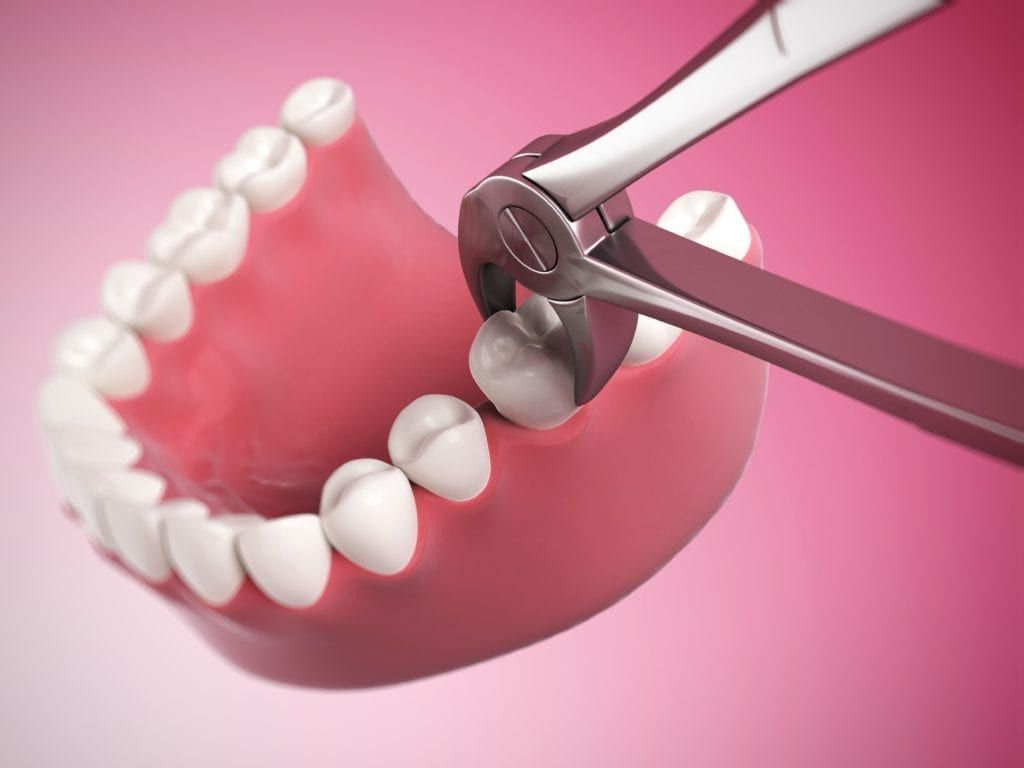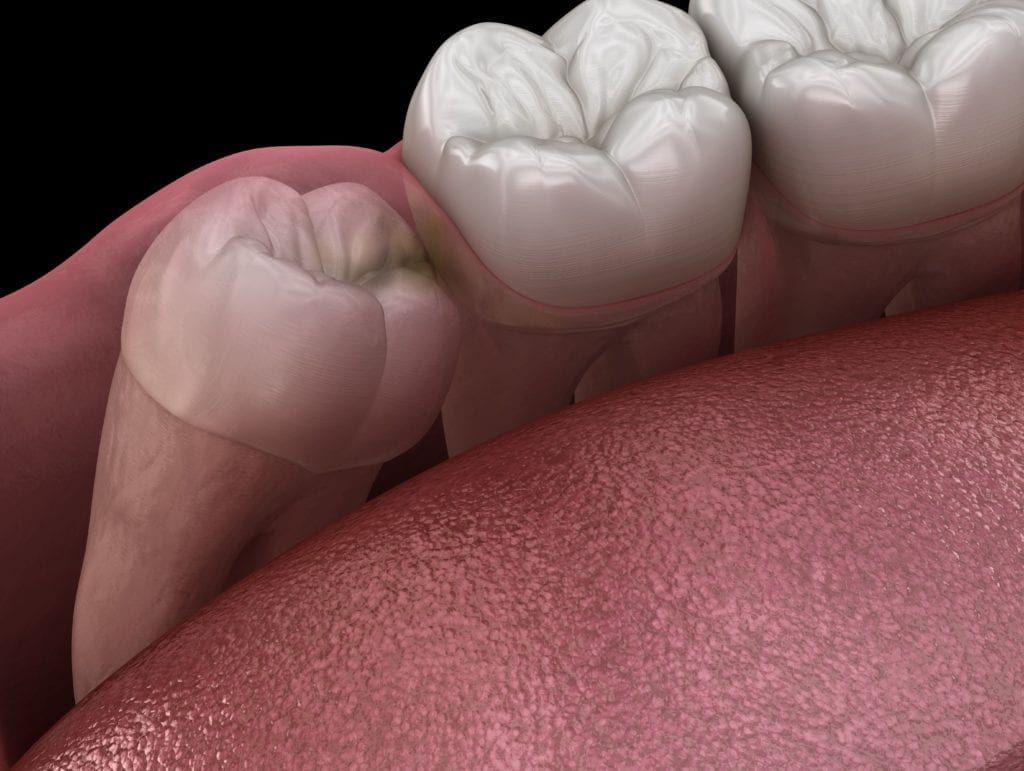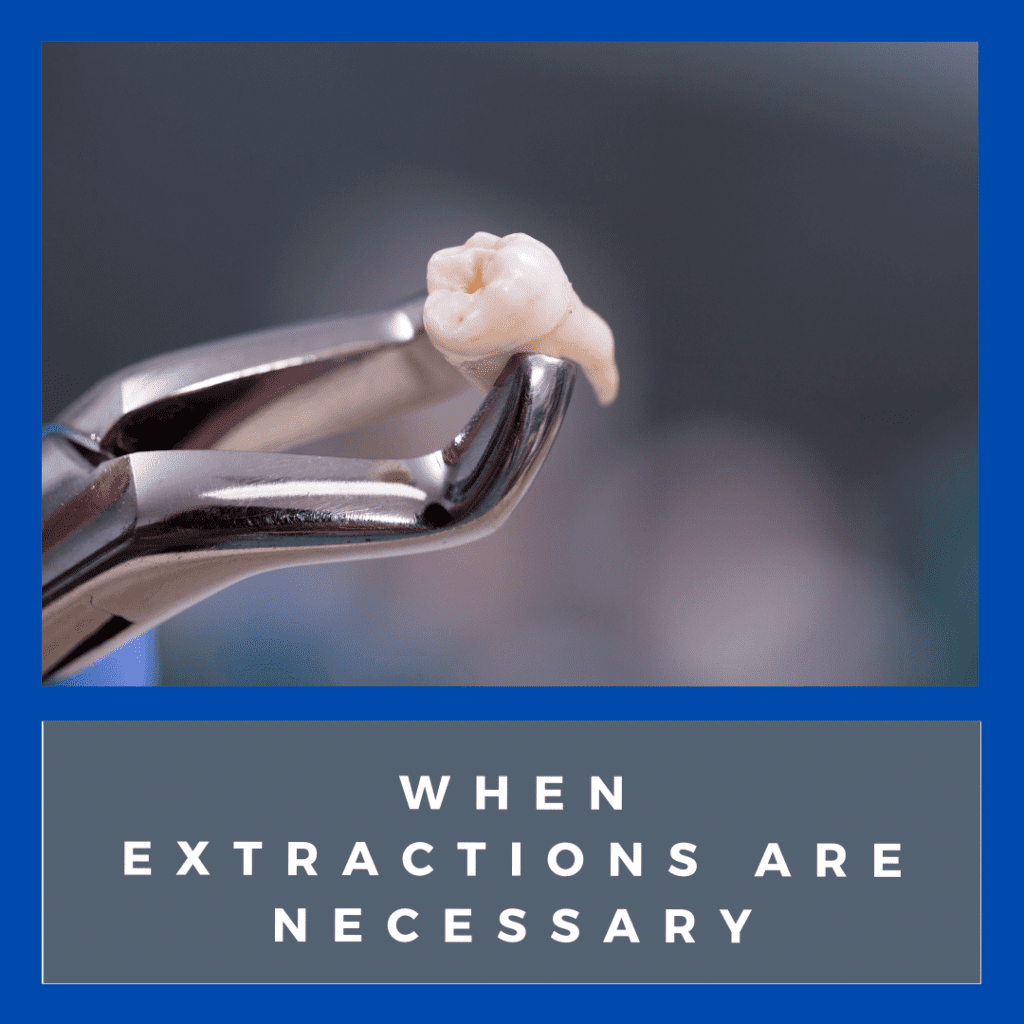While your dentist is dedicated to preserving your oral health and natural teeth, there are times when keeping your natural teeth can have negative consequences on your oral health. When one or more teeth is severely damaged or decayed, restorative dental treatments may not be enough to fully restore the affected tooth or teeth. In these cases, it is generally recommended to extract the affected tooth or teeth.

Although this may sound extreme, tooth extractions are actually relatively common and are beneficial to your oral health. There are two different tooth extraction techniques that may be used. The first is known as a simple extraction, where a set of forceps and an elevator tool will be used to gradually rock the tooth out of the socket. The second method is known as a surgical extraction, where the tooth is broken into pieces before being removed one piece at a time. Both extraction techniques are performed using dental sedation and anesthetics.
At this point, you may be wondering when tooth extractions are necessary. As a general rule, tooth extractions are necessary when one or more teeth is negatively affecting your oral health and is unable to be restored properly. Here are some common examples of when tooth extractions are needed:
Severe Tooth Decay
One reason why a tooth extraction may be necessary is when a tooth is severely affected by tooth decay. Although tooth decay can usually be treated using dental fillings, inlays, onlays, root canals, and dental crowns, in cases where the infection has reached the tooth roots an extraction will be needed. This is because once the infection has spread this far, there is a chance that it will spread to the surrounding teeth. Root abscesses tend to cause severe pain, so it will actually be quite a relief to remove the affected tooth.
Too Many Teeth
In cases where you have too many teeth for the size of your jaw, some may need to be extracted in order to free up some space. Having too many teeth is known as overcrowding. Oftentimes overcrowding causes several teeth to overlap one another and it can even cause some teeth to erupt at odd angles. Severe overcrowding can also make it hard to eat properly.
Advanced Gum Disease
The advanced form of gum disease, known as periodontitis, not only affects the gum tissue, but bone tissue as well. Specifically, bone loss in the jaw can occur and the periodontal ligaments that hold the teeth into the socket are also affected. Unfortunately the combination of these two effects can cause the teeth to become loose or fall out. In these cases, your dentist will usually recommend removing the loose teeth before they fall out.
Dental Trauma

In some cases, teeth may need to be removed because they have been severely damaged due to dental trauma from car or sporting accidents. However, this is only necessary if your dentist cannot adequately restore the tooth using other restoration techniques.
Impacted Teeth
When wisdom teeth start to erupt during early adulthood, they often cause problems. One main problem associated with wisdom teeth eruption is impaction. Partially impacted teeth are those that are partway stuck in the gums, while fully impacted teeth are trapped completely under the gums. To prevent overcrowding or possible infection, it is generally recommended to have wisdom teeth extracted.


